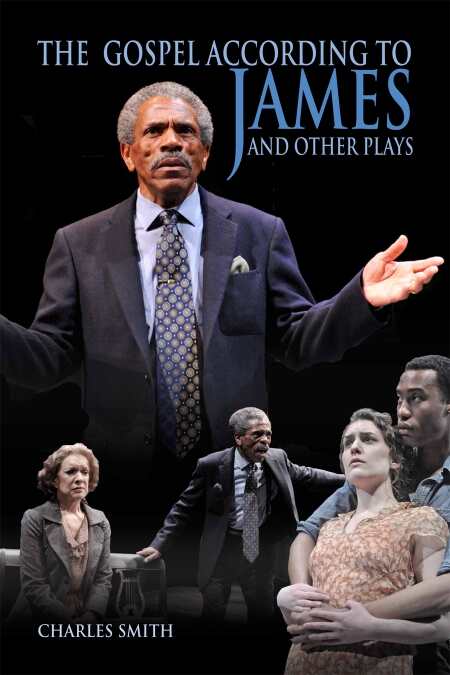The Gospel According to James and Other Plays
A supposed benefactor seeks to ruin the lives of two friends; a leader of the African American community sacrifices his daughter to a higher cause; a scholarship student becomes a shill for a veiled racist enterprise; and a lynching incident is retold in the fashion of Rashomon in the collection The Gospel According to James and Other Plays, by Charles Smith. All five plays, Jelly Belly, Knock Me a Kiss, Pudd’nhead Wilson, A Free Man of Color, and The Gospel According to James, explore racism and other painful issues with intelligence, frankness, urgency, humanity, and a skill for keeping the audience absorbed till the final curtain falls. We find ourselves invested in the characters almost immediately, needing to know what will happen to them next. Smith’s drama is an odd mixture of erudition, savvy, pain, rage, colloquialism, and ideology that converges into spectacular, electrifying theatre. All five are different, and all are equally compelling.
Set during the time of the Harlem Renaissance, Knock Me a Kiss examines the short-lived marriage between Yolande Du Bois and gifted poet Countee Cullen, or, rather, the events leading up to it. Yolande, the daughter of W.E.B. Du Bois, brilliant intellectual and crusader for the advancement of the African American race, is in love with Jimmy Lunceford, a band leader who will eventually feature at The Cotton Club, but Jimmy is rough around the edges. He doesn’t know how to mix sex with warmth and tenderness. Countee Cullen is nearly the perfect companion for Yolande, but he fails to confide an important secret. Yolande’s dfather is eager to see his protégé Countee marry in order to avoid the possible stigma of “homosexuality.” What follows is a treatise on what people who love one another are willing to do to get what they need from the world and each other.
The Gospel According to James depicts a true incident that occurred in Marion, Indiana, in the 1930s. The protagonist, James Cameron, barely escapes being lynched by a mob that has been steeping for months under the pressure of poverty, scarce jobs, and racial tension. He sees his two best friends, Abe and Tommy, beaten and murdered for a crime they didn’t commit. At the crux of this wrenching conflagration is Mary, who was also involved but cannot bring herself to summon the memories of that horrific night. Like Kurosawa’s film Rashomon, Smith demonstrates how deeply conflicted individual versions of the truth can be when personal need clashes with actual events.
The strengths of Smith’s theatre collection are numerous and exhilarating. His characters are original and surprising, often vexing and exasperating, but they each have their piece to contribute. Smith’s dramas are persuasive without being didactic, and without suggesting simple conclusions. They are eloquent and poignant, but with a punch. Something like Carson McCullers without the malaise, or Spike Lee without the chatter. These are smart, profoundly felt, demanding scripts that refuse to pander to our expectations. The Gospel According to James and Other Plays belongs on the shelf of anyone with a sincere love for relevant, powerful theatre.
Reviewed by
Christopher Soden
Disclosure: This article is not an endorsement, but a review. The publisher of this book provided free copies of the book and paid a small fee to have their book reviewed by a professional reviewer. Foreword Reviews and Clarion Reviews make no guarantee that the publisher will receive a positive review. Foreword Magazine, Inc. is disclosing this in accordance with the Federal Trade Commission’s 16 CFR, Part 255.

